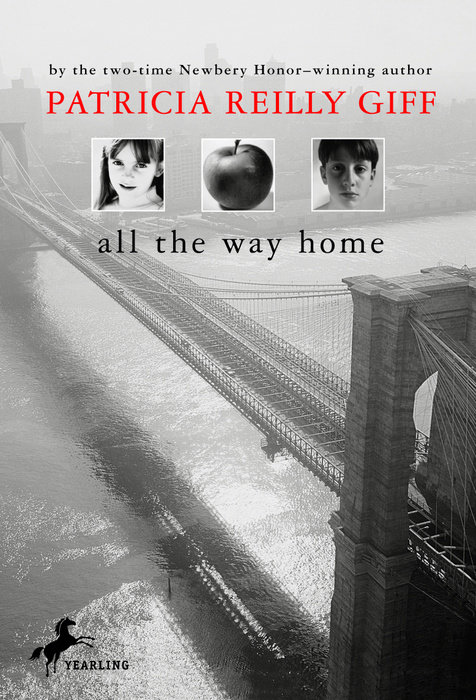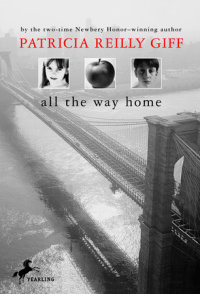All the Way Home
It’s August 1941, and Brick and Mariel both love the Brooklyn Dodgers. Brick listens to their games on the radio in Windy Hill, in upstate New York, where his family has an apple orchard; Mariel, once a polio patient in the hospital in Windy Hill, lives in Brooklyn near the Dodgers’ home, Ebbets Field. She was adopted by Loretta, a nurse at the hospital, and has never known what happened to her own mother. Someday, somehow, she plans to return to Windy Hill and find out. When a fire destroys their orchard, Brick’s parents must leave the farm to find work. They send him to live in Brooklyn with their friend Loretta, even though Brick knows that their elderly neighbors need his help to pick what’s left of the apples. The only good thing about Brooklyn is seeing the Dodgers play–that, and his friendship with Mariel. Maybe, together, they’ll find a way to return to Windy Hill, save the harvest, and learn the truth about Mariel’s past.
An Excerpt fromAll the Way Home
Brooklyn, 1941
1
Mariel
Outside, the milk truck rattled along Midwood Street, the horse clopping, the bottles vibrating in their cases. Mariel heard it in her dream, just on the edge of waking.
The dream began again: green lace curtains with the sun shining through, a fine morning; a soft voice reciting a nursery rhyme: When the wind blows, the cradle will rock. The voice stops. The rippling in Mariel's legs starts, her toes jerk.
It was only a dream, Mariel told herself, only a curtain and a nursery rhyme. It would hang over her all day, though, make her wish for her mother, wonder where her mother was, what had happened to her.
A quick picture flashed in Mariel's mind: a red sweater thrown over her mother's shoulders, her charm bracelet clinking, her cool hand on Mariel's forehead.
If only she could see her mother's face.
"Mariel?" a voice called from outside.
Squinting, she opened her eyes and looked out at the yard. The apple tree spread itself halfway to the bare board fence, almost hiding the row of houses in back. She…


